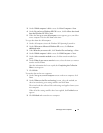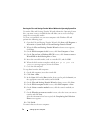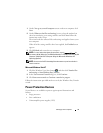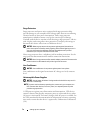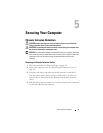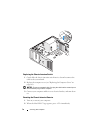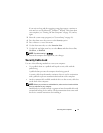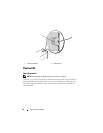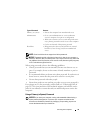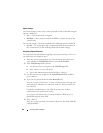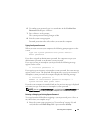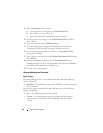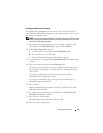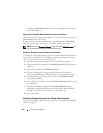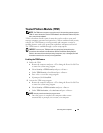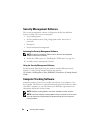
Securing Your Computer 79
NOTE: Some hard drives do not support hard drive passwords.
NOTICE: Passwords provide a high level of security for data in your computer or
hard drive. However, they are not foolproof. If you require more security, obtain and
use additional forms of protection, such as smart cards, data encryption programs,
or PC Cards with encryption features.
When using passwords, observe the following guidelines:
• Choose passwords that you can remember, but not ones that are easy to
guess. For example, do not use the names of family members or pets for
passwords.
• It is recommended that you do not write down passwords. If you do write it
down, however, ensure that the password is stored in a secure place.
• Do not share passwords with other people.
• Ensure that people are not watching you when you type your password(s).
If you forget any of your passwords, contact Dell (see "Contacting Dell" on
page 295). For your protection, Dell technical support staff will ask you for
proof of your identity to ensure that only an authorized person can use the
computer.
Using a Primary (or System) Password
NOTICE: If you leave your computer running and unattended without having a
system password assigned, or if you leave your computer unlocked so that
someone can disable the password by changing a jumper setting, anyone can
access the data stored on your hard drive.
Type of Password Features
Primary (or system)
• Protects the computer from unauthorized access
Administrator
• Gives system administrators or service technicians
access to computers for repair or reconfiguration
• Allows you to restrict access to system setup in the same
way a primary password restricts access to the computer
• Can be used instead of the primary password
Hard drive
• Helps protect the data on your hard drive or external
hard drive (if one is being used) from unauthorized
access



